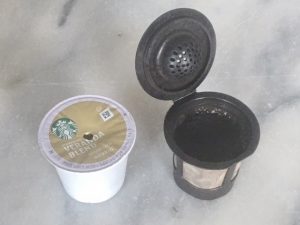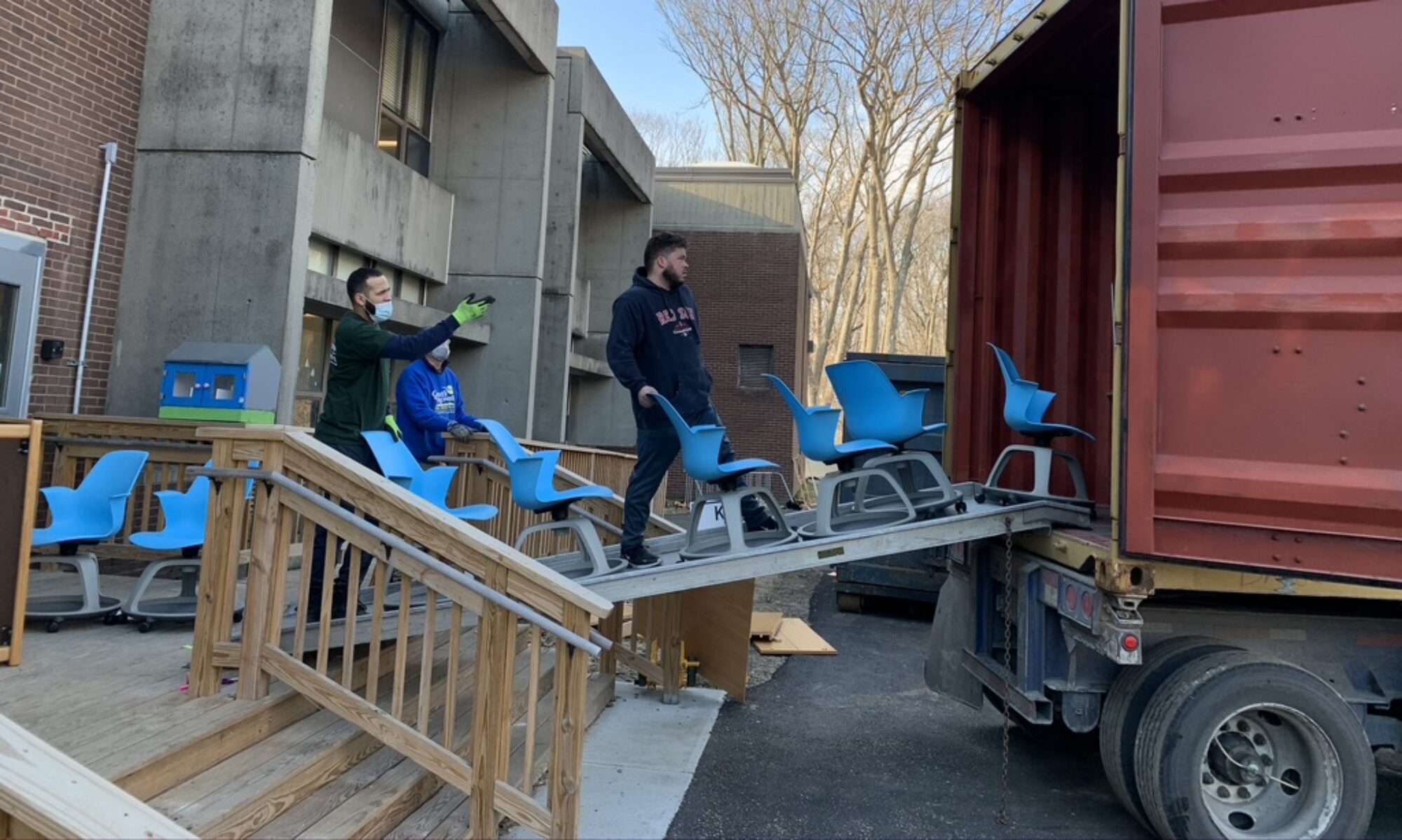 I had the opportunity recently to attend a talk by the Chief Sustainability Officer from Keurig Green Mountain, the K-Cup company. If you’re old enough and from New England, you’ll remember Green Mountain Coffee Roasters, which was a smallish sort-of high-end coffee distributor in the 80s and 90s. In 2000 they had $84 Million in sales, almost all of it from selling coffee in bulk. Then they had the good fortune to stumble onto the K-Cup, and the good sense to patent it. And by 2015 Keurig Green Mountain had sales of $4.5 Billion, almost all of it from selling K-Cups and Keurig Machines. They are, by far, the top-selling brand of coffee in America. Through the end of 2016 they had sold more than 57 billion K-Cups, and more than 60 million Keurig machines.
I had the opportunity recently to attend a talk by the Chief Sustainability Officer from Keurig Green Mountain, the K-Cup company. If you’re old enough and from New England, you’ll remember Green Mountain Coffee Roasters, which was a smallish sort-of high-end coffee distributor in the 80s and 90s. In 2000 they had $84 Million in sales, almost all of it from selling coffee in bulk. Then they had the good fortune to stumble onto the K-Cup, and the good sense to patent it. And by 2015 Keurig Green Mountain had sales of $4.5 Billion, almost all of it from selling K-Cups and Keurig Machines. They are, by far, the top-selling brand of coffee in America. Through the end of 2016 they had sold more than 57 billion K-Cups, and more than 60 million Keurig machines.
They wish to be known for their commitment to Sustainability. If you go to their website, “Sustainability” is the first word written at the very top of their home page, and their “About Us” is filled with stories of their environmental and social accomplishments.
The talk I attended focused on recycling, and how Keurig Green Mountain was working hard to figure out how to recycle the K-Cup. The Sustainability person said it was a difficult challenge. There’s the plastic cup, and the wet coffee, and the top that is aluminum foil and plastic. It’s not easy to take the top off, because of course it can’t be easy to take the top off, because the last thing you want is the top of your K-Cup coming off in the machine, or in your hands on the way to the trash bin. The K-Cup is the ultimate single-service, non-recyclable consumer commodity. In fact, that’s the whole point. Pre-portioned, spill-proof, no mess, no fuss; use it and throw it away.
There’s an easy solution. I have it in front of me, here on my desk. It’s a little K-Cup sized filter, which I bought at Bed, Bath, and Beyond. You fill it with coffee and shut the lid (takes about ten seconds), pop it in your Keurig Machine just like a K-Cup, and when it’s finished brewing you open the lid, dump out the coffee grounds, and rinse the filter (depending on how far to the nearest sink, takes maybe 30 seconds). And reuse it again, and again, and again. And again, and again, and again. Recycling is irrelevant; you can reuse this K-Filter practically forever.
I listened to that talk by the young woman who is the Chief Sustainability Officer at Keurig Green Mountain, and I was grievously tempted to raise my hand and say, “Excuse me, but I have the solution sitting on my desk, a little K-sized filter, which anyone can buy right now at Bed, Bath, and Beyond. Certainly you know about this solution. Why are you not talking about it?”
I did not ask that question because the honest answer would have been really uncomfortable for that nice young woman. Because the honest answer, of course, is “We have ridden the K-Cup to become the largest coffee distributor in America. We control the technology, and so we control whose coffee goes into the K-Cup. Our coffee, or coffee licensed by us. Your K-Filter, Mr. Lennon, can be filled with anyone’s coffee. It would be financial folly to promote a product like that, which cuts Keurig out of the K-Cup.”
She would not have said that, of course. She would have had a pre-programmed answer to my question. Whatever it might have been, it would have been equally uncomfortable, because dishonest.
I’m really glad I am not the Chief Sustainability Officer at Keurig Green Mountain, or any other big company. For those companies, Sustainability is a nice concept, and if it doesn’t hurt sales and profits, and particularly if it can be turned to competitive advantage, then hell yes, they’re all for Sustainability. But management is responsible to shareholders, and the numbers shareholders see and care most about are measured in dollars – not in pounds of plastic kept out of the landfill, or tons of coffee composted, or pounds of aluminum recycled. In a profit- and growth-driven economy, that’s just the way it is. If the goose that’s laying the golden eggs is a dirty goose, and the eggs are dirty eggs, you can hire an egg-polisher and give them a title like “Chief Sustainability Officer.” But in the end it’s the gold that counts.
